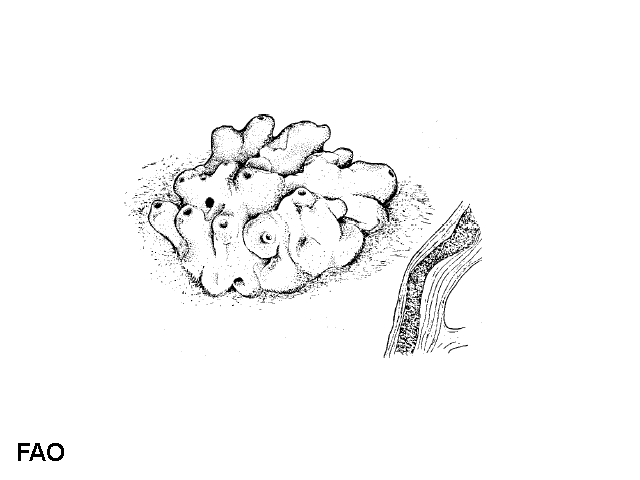| Spongiidae () |
| 20 cm WD (male/unsexed) |
|
sessile; marine |
| Mediterranean. |
|
Maximum size: seldom exceed 15 to 20 cm in diameter. Massive sponge; generally with lobes short and round-offs; finished by a osculus a few mm in diameter and laterally traversed by radiant; visible surface channels under ectosome. Surface small and regular glazes of conules. Primary: 0.004 to 0.006 cm diameter; well individualized fibers; equipped with a sinuous marrow occupying approximately one the third of fiber; generally deprived of foreign bodies (sometimes with some rare spicules foreign). Secondary fibers: 0.0022 to 0.0035 cm diameter; in dense network, with often a surface finer fiber network (0.0004 to 0.001 cm). Color: yellowish white, often rust inside. |
| Species to very flexible skeleton, probably more "fine" of all commercial sponge; it is not exploited on a commercial basis, undoubtedly because of its small size, its relatively low abundance and its brittleness (Ref. 363). |
|
Not Evaluated (N.E.) Ref. 123251)
|
| harmless |
|
Source and more info: www.sealifebase.org. For personal, classroom, and other internal use only. Not for publication.

